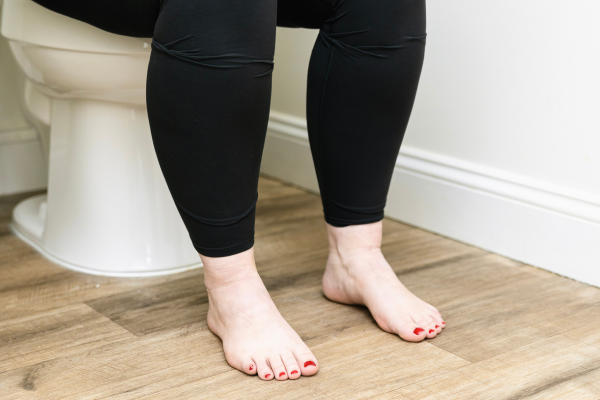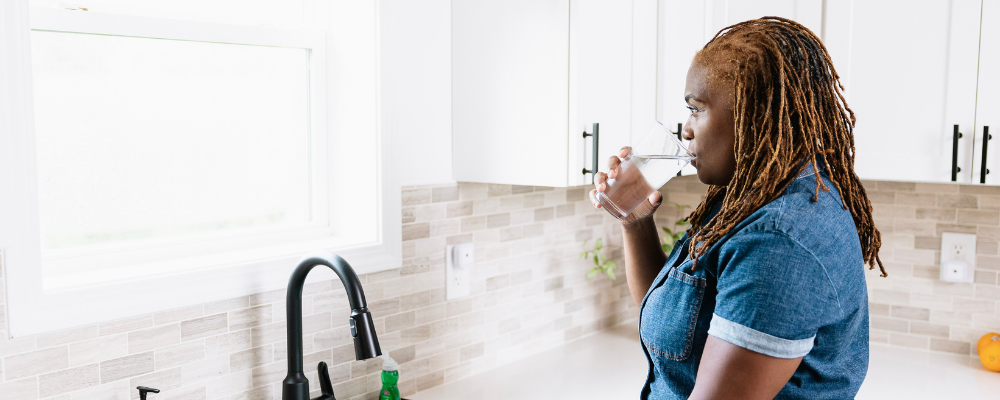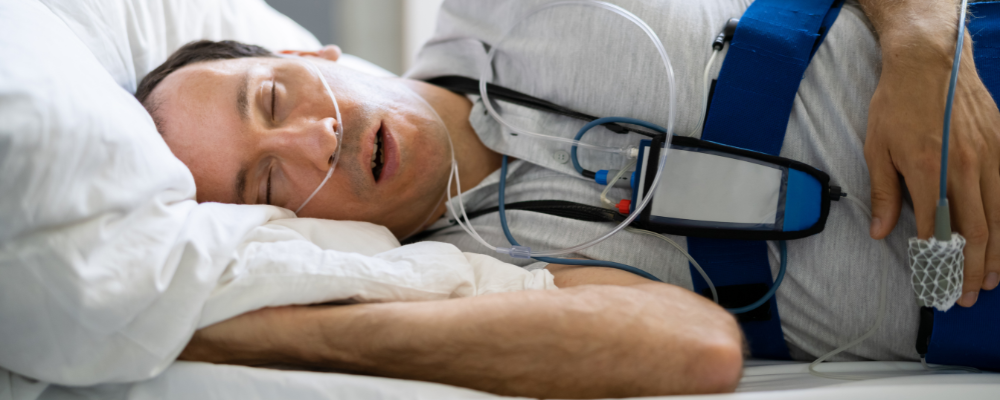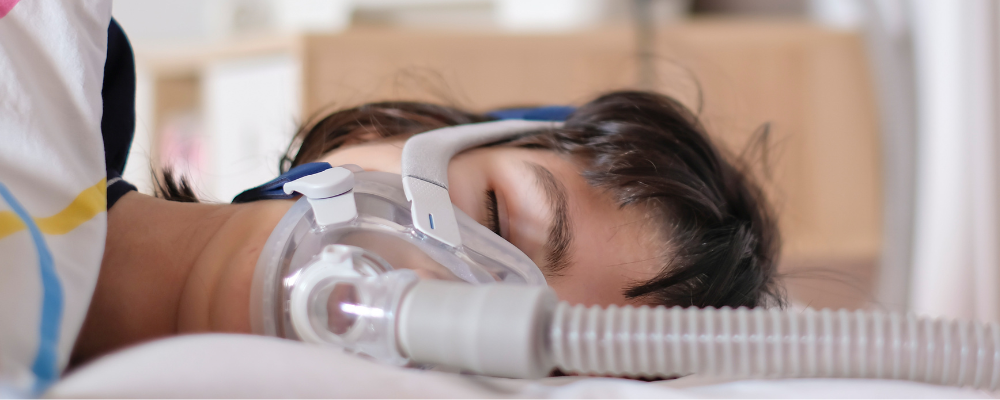February is American Heart Month. But what does your heart have to do with your obstructive sleep apnea (OSA,) not to mention your pee? Well, a new study revealed that people with high uric acid and OSA have a higher risk of death, and the way researchers found out about this was all thanks to cardiovascular disease (aka, heart disease.) Joined by our favorite Medical Advisor, Dr. Carleara Weiss, we’ll do a little digging into some risk factors you may not yet know exist and introduce you to Aeroflow Urology.
How Does OSA Impact Serum Uric Acid Levels?
Before we answer the how, we should first define OSA and serum uric acid levels…
OSA stands for obstructive sleep apnea, and it’s the most common form of sleep apnea. In fact, it’s been dubbed an “epidemic” and “public health crisis,” because an estimated 39 million Americans have OSA and only 6 million know it. OSA patients may snore, experience headaches, or feel tired during the day. All of these symptoms (and more) could be telling you that you’re not getting enough oxygen while you sleep. You may even stop breathing, which is called apnea. Enough apneas caused by obstruction in your throat or mouth, and you probably have OSA.
Uric acid, on the other hand, is simply bodily waste. It’s a chemical resulting from when the body breaks down “purines” from food and drinks. Most gets processed through the kidneys, becoming an excretion of urate (or urine) while serum uric acid (SUA) is when that waste gets into your bloodstream. Don’t get grossed out. Everyone has this, but what matters is how much you have. According to Medical News Today, SUA concentrations above 7.0mg/dL in males or above 6.0mg/dL in females is unhealthy. It could even lead to its own diagnosis called hyperuricemia.
When you have hyperuricemia, SUA is forming into crystals, blocking your joints, tissue, and arteries. That becomes a risk of gout, kidney disease, and ultimately heart failure. People with painful joints—particularly the big toes—and kidney stones may have hyperuricemia. The same demographic has a prevalence for obstructive sleep apnea as well. Talk to your primary healthcare provider if you suspect you have either OSA or hyperuricemia.


Looking at the two disorders together is what our friends performing the observational study in our introductory paragraph did. Using data from the National Health And Nutrition Examination Survey as a baseline, they discerned that 20% of the researched deaths, caused by cardiovascular disease, had an average uric acid level of 5.83mg/dL. Meanwhile, the patients who were 60 years old or more and had been diagnosed with OSA lived 25% longer.
Can High Uric Acid Cause Sleep Apnea?
It appears that OSA is not really to blame and does not actually impact serum uric acid levels. At least, not according to this prospective study. However, it’s important to note that this research is still very recent; a follow-up epidemiological study will most likely be needed. Except now that we’ve covered how little OSA impacts SUA, let’s consider the reverse…
Comorbidities behind high uric acid and OSA tend to overlap. From diabetes mellitus to hypertension, you’re automatically at higher risk for both. The question is…which comes first? The chicken or the egg? The uric acid or the sleep apnea?
Dr. Carleara Weiss points out, “The original study has data on how many of the patients were of a binary gender, what their average BMI, and comorbidities were. Men had higher SUA, and there was a significant difference in BMI. This makes sense when considering OSA.”
What Worsens OSA?
Uric acid isn’t the only risk factor to take into consideration, of course. For example, people in the study had comorbidities such as stroke. There are many comorbidities that can worsen your obstructive sleep apnea. After all, we started this blog talking about one: heart disease.
You can also be at increased risk for OSA if you struggle with…
- Obesity or Unexplained Weight Gain
- Substance Abuse; including nicotine or alcohol
- Sleep DIsorders; such as insomnia, RLS, and narcolepsy
- Mental Illness; such as PTSD, anxiety, and depression
Does CPAP Therapy In OSA Patients Improve Uric Acid?
CPAP stands for continuous positive airway pressure, and CPAP therapy is the recommended sleep medicine for OSA patients. CPAP treatment uses an APAP, BiPAP, or CPAP machine to push pressurized air up a tube, which you will then breathe from via a CPAP mask. Thus, this pressurized air will help keep your airways open.
CPAP therapy does not directly treat high SUA levels, but it could help reduce some of the risk factors that are associated with both disorders, minimizing the amount of urine that makes it into your bloodstream. Or, if frequent urination is your problem, you may be in luck there, too.
Your One Stop Shop For Sleep Apnea And Incontinence
The EUR Respiratory Journal claims the severity of OSA does directly affect incontinence. Incontinence is when you lose control of your bladder, forcing you to make sudden, often embarrassing, trips to the bathroom. If you’re trying to overcome either disorder, you’re in the right place!
Aeroflow Sleep is actually a subgroup of the nation’s fastest-growing durable medical equipment provider, Aeroflow Health. Among these subgroups is Aeroflow Urology. While we address your sleep apnea needs, Aeroflow Urology treats your incontinence with compassion and discretion. We supply CPAP parts, and they supply briefs, catheters, and supplemental products. Best of all, you may get everything covered up to 100% through your insurance.
Click either button below to see if your insurance plan is in-network with Aeroflow:
Please know it takes 5-7 minutes to fill out each form. Filling out the form for Aeroflow Sleep does not guarantee you will receive Aeroflow Urology’s products and vice versa.
References
Yang, Z., Lv, T., Lv, X. et al. Association of serum uric acid with all-cause and cardiovascular mortality in obstructive sleep apnea. Sci Rep 13, 19606 (2023). https://doi.org/10.1038/s41598-023-45508-2
American Medical Association (AMA). What doctors wish patients knew about sleep apnea. April 1, 2022. Found on the internet at https://www.ama-assn.org/delivering-care/public-health/what-doctors-wish-patients-knew-about-sleep-apnea
Jessica Maiuolo, Francesca Oppedisano, Santo Gratteri, Carolina Muscoli, Vincenzo Mollace, Regulation of uric acid metabolism and excretion, International Journal of Cardiology, Volume 213, 2016, Pages 8-14, ISSN 0167-5273, https://doi.org/10.1016/j.ijcard.2015.08.109. (https://www.sciencedirect.com/science/article/pii/S0167527315303429)
Qingshi Chen, Guofu Lin, Lida Chen, Jiefeng Huang, Yaping Huang, Ping Li, Mengxue Chen, Qichang Lin, "Does Continuous Positive Airway Pressure Therapy in Patients with Obstructive Sleep Apnea Improves Uric Acid? A Meta-Analysis", Oxidative Medicine and Cellular Longevity, vol. 2019, Article ID 4584936, 9 pages, 2019. https://doi.org/10.1155/2019/4584936
van Durme, C., Spaetgens, B., Driessen, J. et al. Obstructive sleep apnea and the risk of gout: a population-based case-control study. Arthritis Res Ther 22, 92 (2020). https://doi.org/10.1186/s13075-020-02176-1
Amani Ben Mansour, Haifa Zaibi, Jihen Ben Ammar, Bassma Dahri, Mohamed Ali Baccar, Saloua Azzabi, Hichem Aouina European Respiratory Journal 2015 46: PA2380; DOI: 10.1183/13993003.congress-2015.PA2380










